
Client Engagement Session Infp personality, Personality psychology, Mbti personality
Sensing - Intuition. Sensing - Intuition: This section Sensing-Intuition Preferences will delve deeper into how differently the two types perceive information. The Sensing and Intuition functions is about how we perceive information; meaning how we gather information and the type of information we prefer to accept.
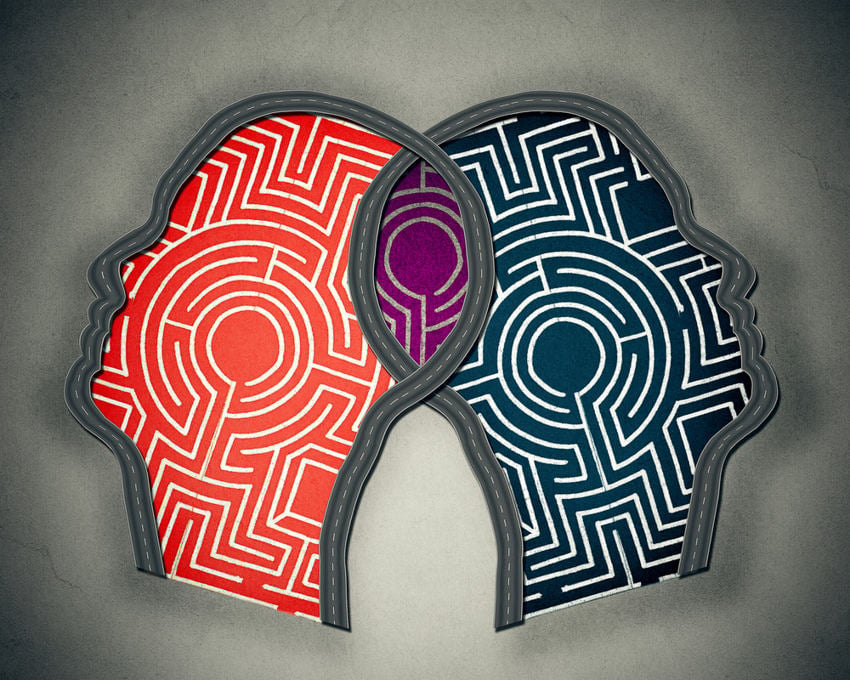
Sensing vs Intuition What Is the Difference and Which of the Two Do You Use? Learning Mind
Sensing to Intuition Feeling to Thinking Perceiving to Judging People tend to gravitate toward one end or the other on each spectrum. Occasionally, people will have preferences that land more toward the middle, such as someone who would prefer to be called an ambivert than an extrovert or introvert.

Intuitives vs Sensors Where do You Fit? Personality Hunt
Technology that is more intuitive, both in design and its very nature, demonstrates more human-like intelligence, and is easy to integrate across every aspect of our lives.. Lastly, perhaps one of the most exciting "human interface" technologies is neurotech: neuro-sensing and BCI. Many new neurotech companies have appeared in.
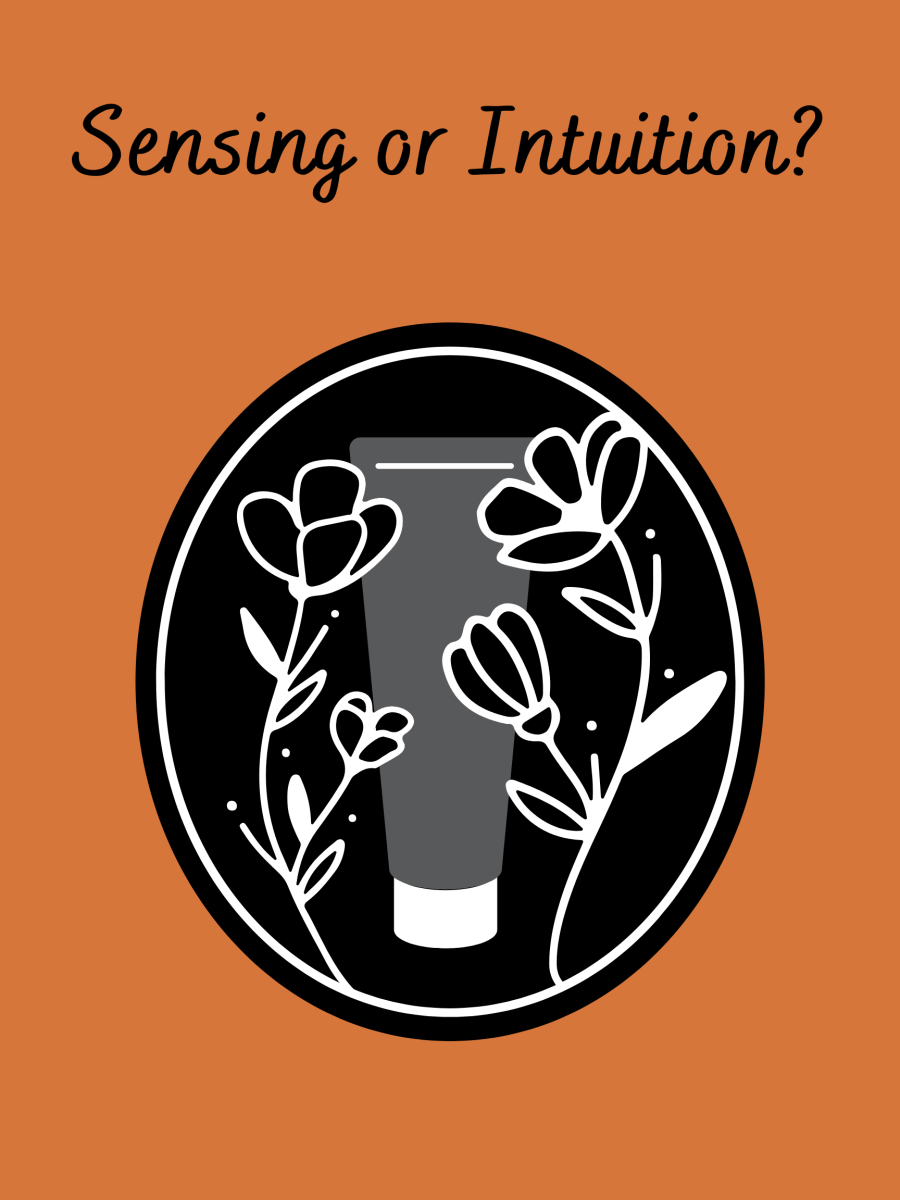
Breaking Down Myers Briggs What Is Sensing Vs. Intuition? Owlcation
Samsung's AI technology extends to appliances beyond the kitchen, as well. The new Bespoke AI Laundry Combo™ — an All-in-One washer and dryer — features the AI Hub [9] [10], which is a 7-inch LCD display that acts as an intuitive control center for managing laundry, allowing users to enjoy a simple washing and drying experience. It can.
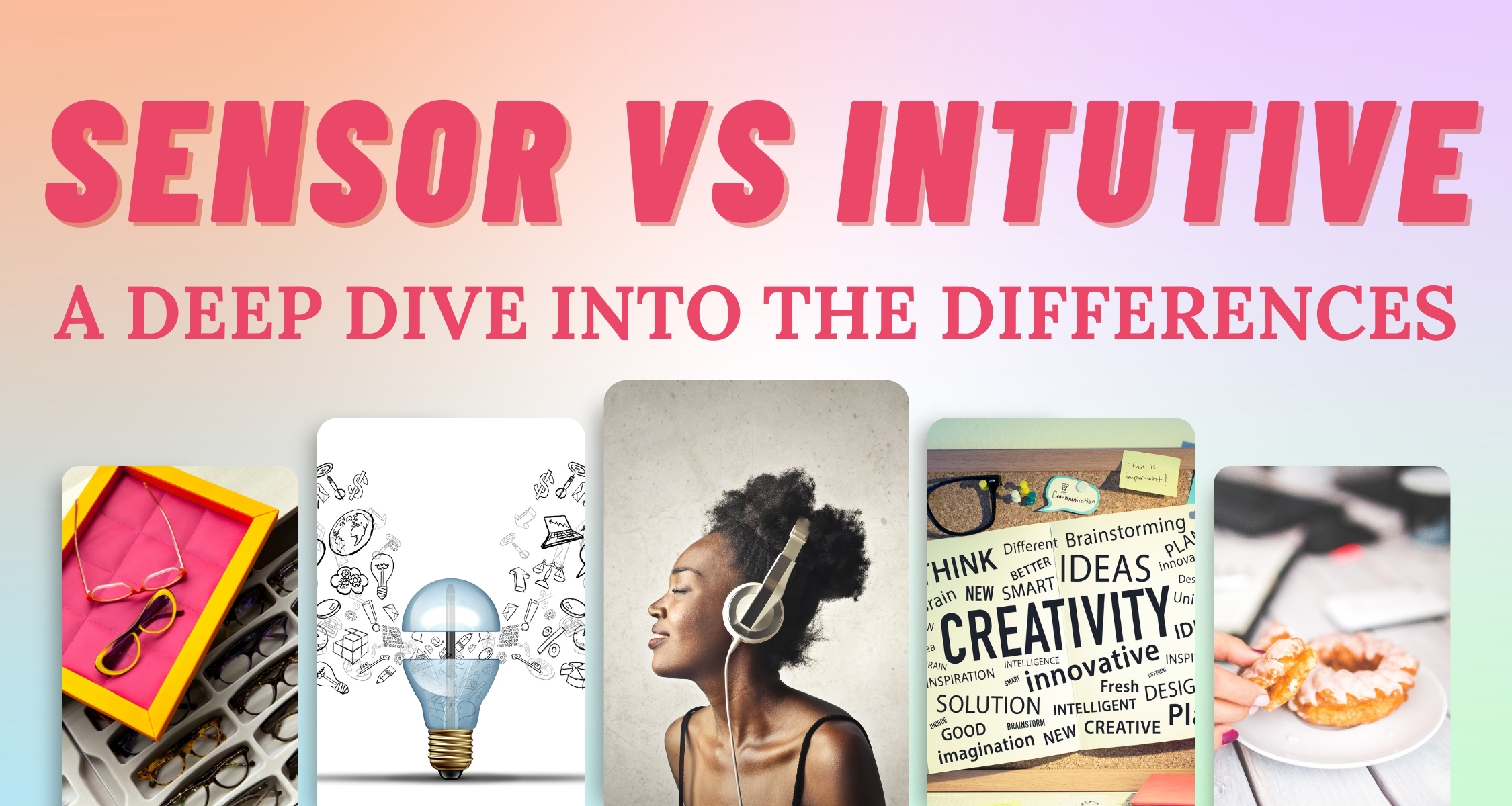
Sensor vs Intuitive Which Are You? So Syncd Personality Dating
How To Properly Use The Words In A Sentence Using the words sensing and intuition correctly in a sentence can be challenging, especially since they are often used interchangeably. However, understanding the difference between the two can help you communicate your thoughts and ideas more effectively. How To Use Sensing In A Sentence
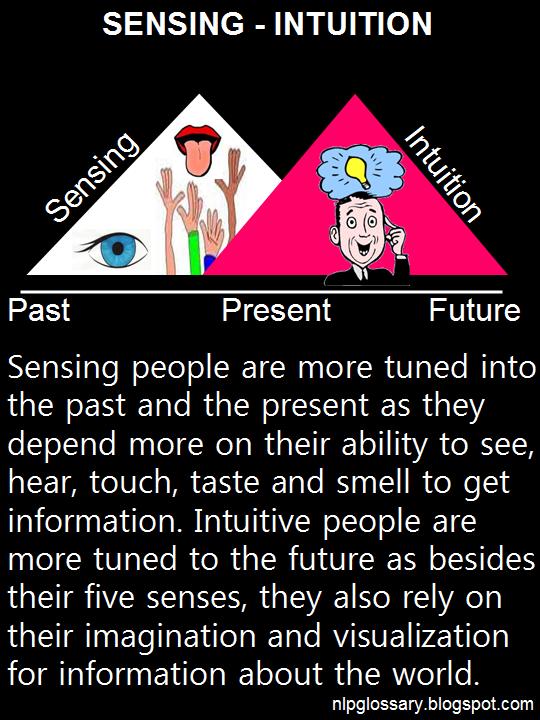
NLP GLOSSARY MBTI Sensing and Intuition
What do sensing and intuition mean? When it comes to the Myers-Briggs Type Indicator (MBTI), sense and intuition are key factors that impact how people interpret and digest data. As a preference, sensing emphasizes being in the now via being skilled at obtaining information through the five senses.
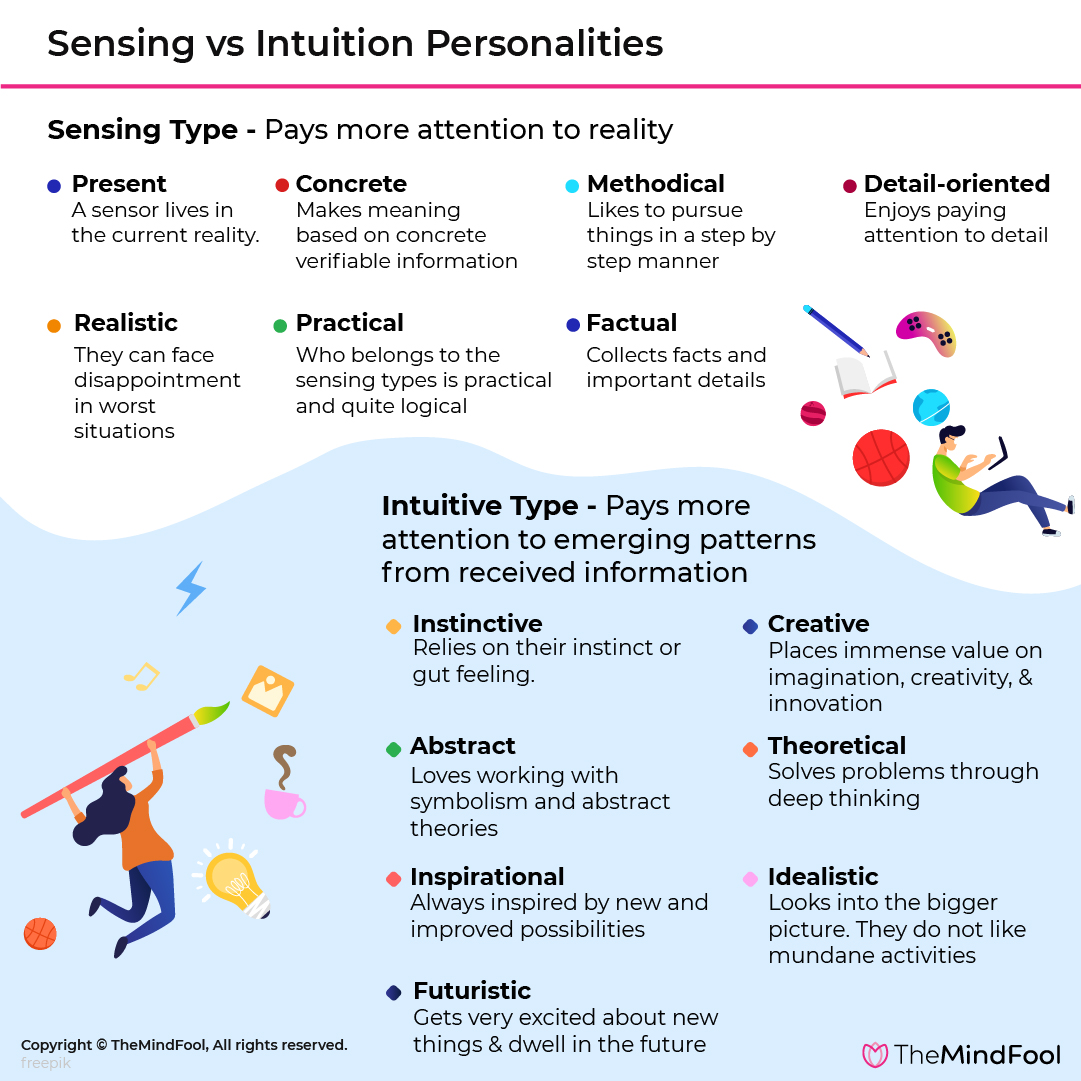
Sensing vs Intuition Intuitive Personality Sensing Personality Sensing vs Intuition Test
Key Differences. Sensing is the process of using the five physical senses to gather information about the present environment. Intuition, in contrast, involves understanding or knowing something without conscious reasoning. Individuals who favor sensing pay close attention to facts and details they can directly observe.
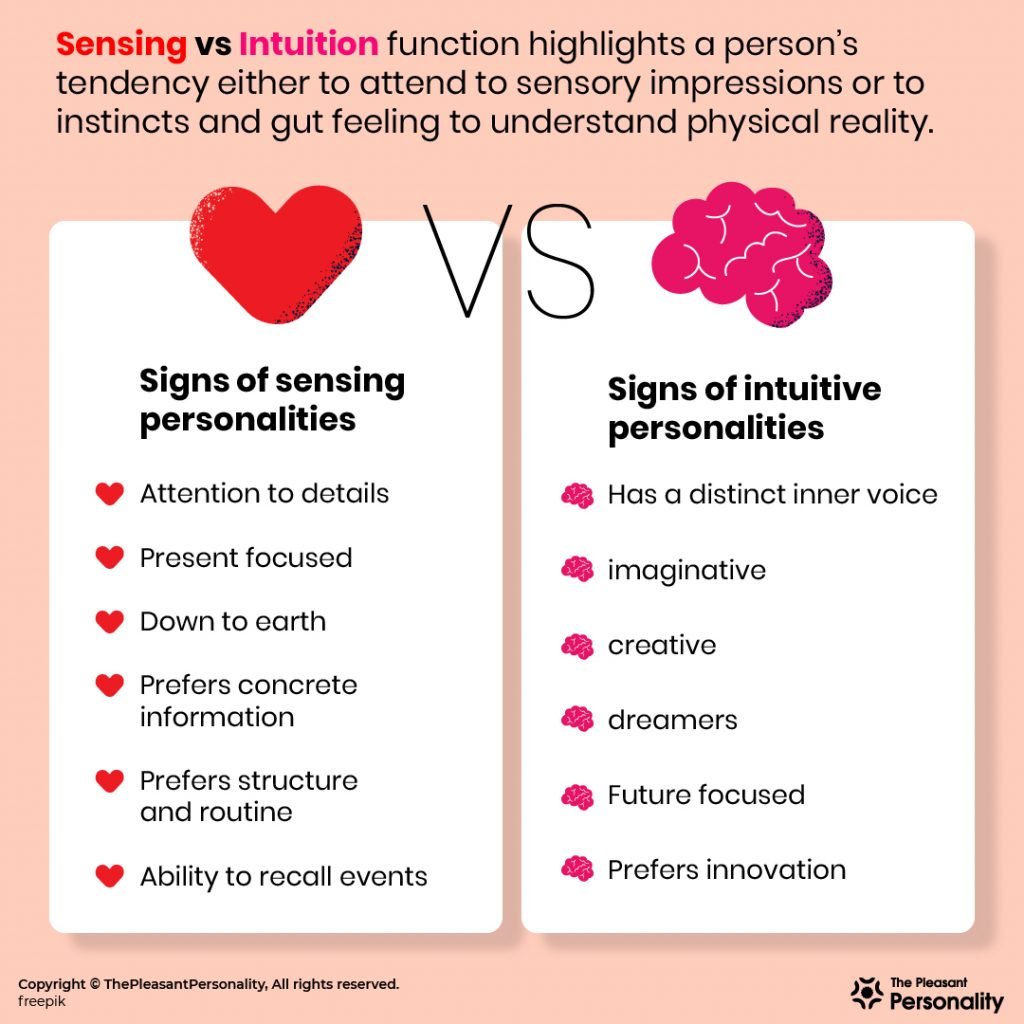
Sensing Vs Intuition The Perceptual Preferences
Sensing (S) and Intuition (N) are two functions that are used to gather and analyze new information, either through your five human senses or in more abstract ways. The preferences of sensing and intuition are diametrically opposed. The natural inclination of any personis what makes them either a sensor or intuitive personality type.

Intuition vs Sensing Are You a Sensor or an Intuitive? 👼 YouTube
Sensing versus Intuition is kind of a big deal. Regardless of your personal style, managing effectively means exercising some versatility in the way you motivate and lead your people to reach their fullest potential. Here's how to flex your style to meet the specific needs of Sensors and Intuitives. How to spot a Sensor versus an Intuitive

Sensing Vs. Intuition How Do You Perceive Your World? Business motivational quotes, Intuition
Sensing is the ability to gather information through the five senses, while intuition is the ability to understand information through patterns and connections. Understanding the differences between these two perceptual functions can help you better understand yourself and others.
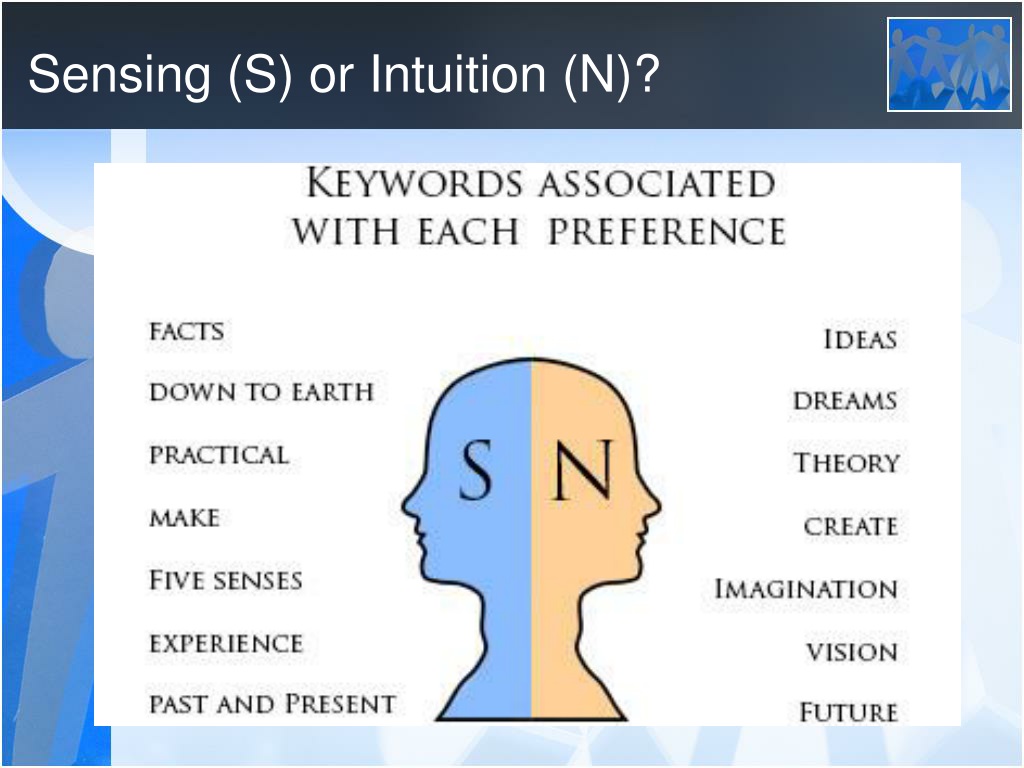
PPT 16 Personality Types PowerPoint Presentation, free download ID9674972
Sensing and intuition, in the most basic terms, have to do with how you take in information. As their names imply, sensors take in information through their senses, and intuitives take in information through their intuition. Buuuut, those are just words. What we really need…are stick figures. Essentially, a sensor is doing this:

MyersBriggs’ Sensing vs. Intuition Explained I Indeed Career Quick Tips YouTube
Is it closer to sensing or intuition? And, of course, there is a gray area in between. Those who score in this area should read through relevant personality types descriptions and observe themselves to identify their preference for sensing or intuition.

The Differences Between Sensing and Intuition Intuition, Senses, Vibrance
While intuition has always been more-than-human, as it develops via immanent interactions among minds, bodies, and environments (Pedwell 2022), the emergence of 'artificial intuition' enabled by algorithmic architectures trained on vast quantities of data illuminates how sensing, thinking, and speculating in computational cultures now extend across and are entangled with machines animated.

Sensing vs Intuition Illustrated Differences in Perception YouTube
- Learning Mind Sensing vs Intuition: What Is the Difference and Which of the Two Do You Use? Sherrie Hurd, A.A. March 5, 2018 6 mins read Personality There are two ways to look at any given situation or task: sensing vs intuition. You may have thought they were the same thing, but they're not.

sensor and intuitive Archives Joe Arrigo
75 of The Top 100 Retailers Can Be Found on eBay. Find Great Deals from the Top Retailers. eBay Is Here For You with Money Back Guarantee and Easy Return. Get Your Intuition Today!
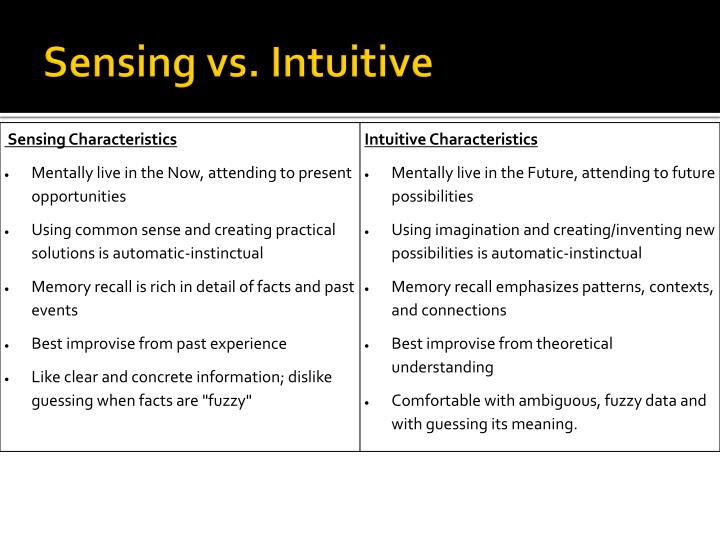
PPT Personality Types MyersBriggs Personality Test PowerPoint Presentation ID2739260
The main difference between sensing and intuition is that the sensing focuses on what can be detected through the five senses while intuition focuses on the impressions and patterns created from the gathered information. Sensing and intuition are two psychology dichotomies first identified by Isabel Briggs Myers.